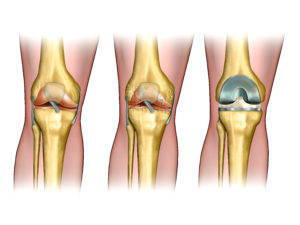Tips for a Successful Knee Replacement Recovery
After surgery, your at-home recovery is important! It will never never be easy, but with the help of family and friends, the work and preparation you put in will help you heal your knee quickly and correctly. To get the strength in your in back and avoid future complications from total knee replacement surgery, we listed these tips to keep in mind:
Use Walking Canes or Crutches
There’s no question there’s a certain stigma around using crutches or canes, particularly among older surgery patients, but there’s a reason surgeons recommend using them after surgery. It aids your body and avoids patients limping and bad walking patterns, in which knee surgery
patients can further injure themselves, or even worse, change how you walk. Most likely, you’ll be instructed to use a walker for up to 3 weeks, and then switch to crutches.
Ensure Proper Home Safety
It’s important to keep your home safe after your total knee replacement surgery. The last thing you want is to re-injure your knee by tripping or falling at home. For stairs, it’s helpful to have a handrail to hold on to. In bathrooms and showers, make sure to have grab rails installed. Move
furniture to create clear, secure pathways to make walking easy. You’ll also want to remove any items that could potentially cause someone to trip like electrical cords, rugs or any toys or clutter that could be on the floor.
Do Exercises both at Physical and at Home
For a speedy recovery from total knee replacement surgery, it’s not just about the exercises you do at physical therapy – you’ll also need to do regular exercises at home. Finding the right physical therapist is helpful because they can teach you how to do your exercises with correct
form, so you can continue to do them correctly at home. Make sure you stick to an exercise schedule to follow at-home!
Be Proactive with Knee Swelling
After surgery it’s very likely you’ll experience swelling in your knee. You can reduce knee swelling by either resting your foot on a something that is higher than your hip – often, a pillow o a bed or couch will do. You can also reduce swelling in your knee by applying ice to it. If by six months you are still experiencing swelling, you should consult your doctor.
Stay Active with Low-Impact Physical Activities
When the time is right, it is a good idea to do low-impact activities, like biking, hiking, walking, tennis, and swimming. Low-impact activities keep the muscles in the knee strong, while not overdoing the stress on your knee. High-impact activities like running, rock climbing, and
high-impact sports like basketball, soccer, and others are risky for those who had total knee replacement surgery and should be avoided.
Dr. Nakul Karkare is a knee and hip doctor based in Long Island, NY, and has performed replacement and revision surgeries for more than ten years. More information, visit www.newyorkhipknee.com


